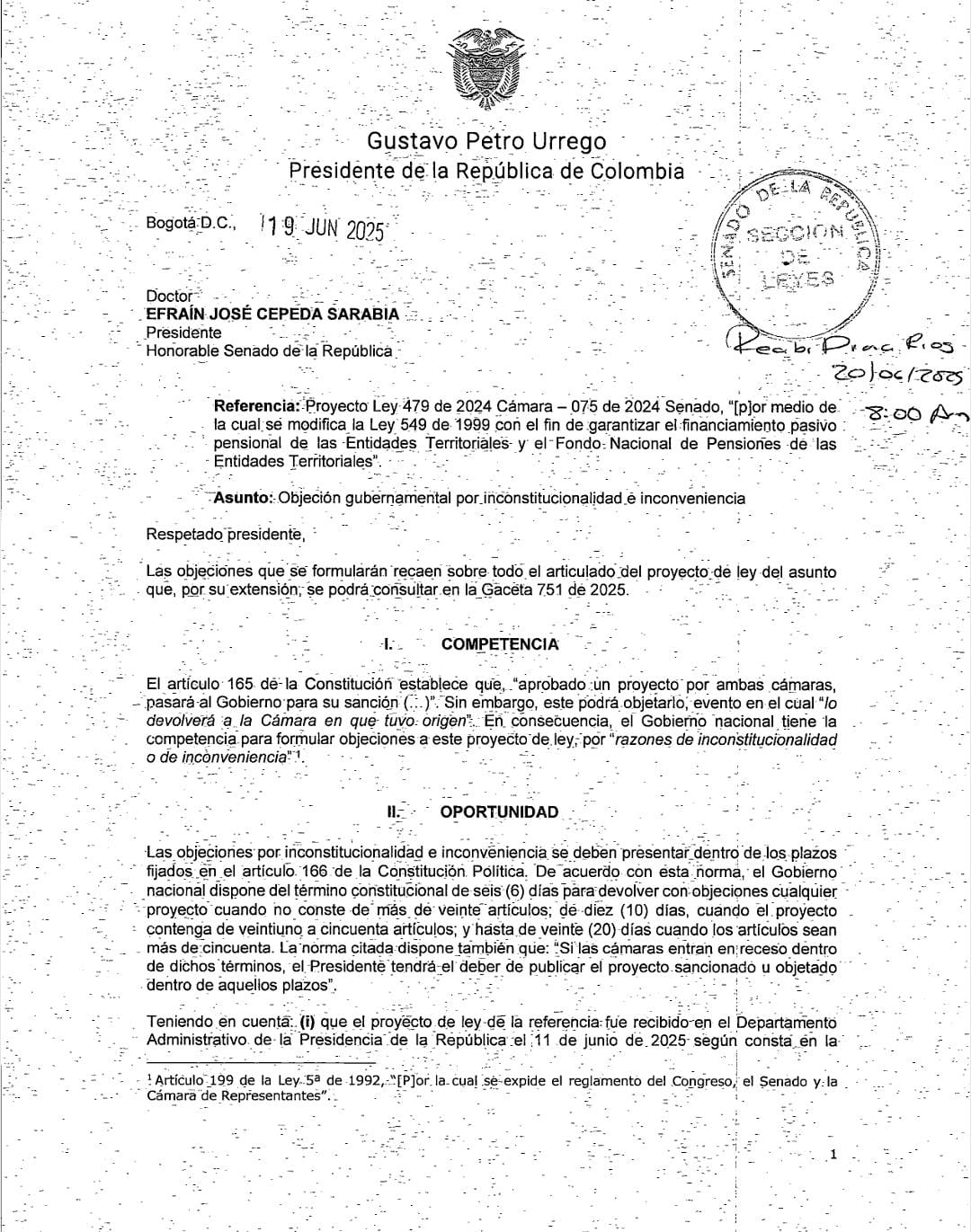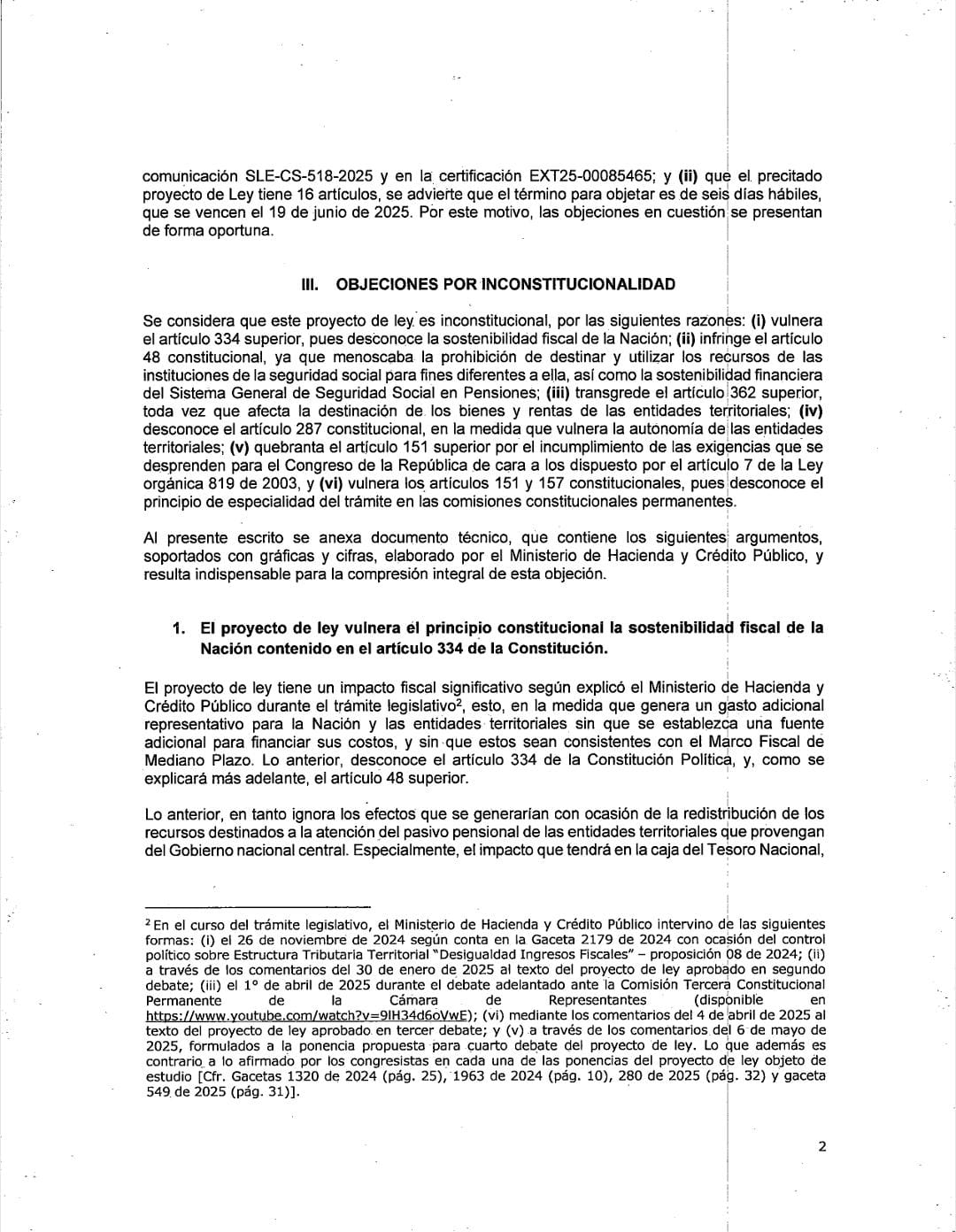The government objected to the bill amending the Fonpet, considering it unconstitutional and inconvenient.

The Ministers of Finance, Germán Ávila Plazas, and Labor, Antonio Sanguino, objected to the bill approved by Congress that would grant mayors and governors greater autonomy over the management of resources from the National Pension Fund for Territorial Entities (Fonpet), a mechanism created to help these entities cover their pension obligations. The ministers consider the initiative unconstitutional and inappropriate.
The legislative proposal, approved in May of this year, updates Law 549 of 1999 and seeks to grant greater autonomy to territorial entities in the management of the fund's resources. It also extends until 2044 the deadline for Fonpet to gather the necessary resources to guarantee the pensions of workers in the education, health, and general-purpose sectors.
In a letter addressed to Efraín Cepeda, president of the Senate, the ministers argue that the bill is unconstitutional because, according to the government, it violates the principle of fiscal sustainability of the nation, enshrined in Article 334 of the Constitution.

This was the document filed with the President of the Senate. Photo: Ministry of Labor
According to the Ministry of Finance, the bill does have a fiscal impact, and therefore requires government support. "(...) since it ignores the effects that would arise from the redistribution of resources allocated to address the pension liabilities of territorial entities that come from the Central National Government. Specifically, the impact it will have on the National Treasury," the document states.
The initiative also claims to violate Article 48 of the Constitution—which establishes that social security is a mandatory public service— and violates Article 362, since, according to the government, it affects the allocation of assets and revenues of local governments.
"It disregards Article 287 of the Constitution, insofar as it violates the autonomy of territorial entities; it violates Article 151 above, due to its failure to comply with the requirements imposed on the Congress of the Republic by the provisions of Article 7 of Law 819 of 2003," they add.

This was the document filed with the President of the Senate. Photo: Ministry of Labor
The National Government's decision requires the bill to return to the original chamber, where a new debate will take place on the objections raised.
If Congress insists on approving the bill despite objections, it will be referred to the Constitutional Court, which must determine whether it is constitutional. If it is declared constitutional, President Gustavo Petro must sign it into law.
CAMILO A. CASTILLOPolitical EditorX: (@camiloandres894)
eltiempo





